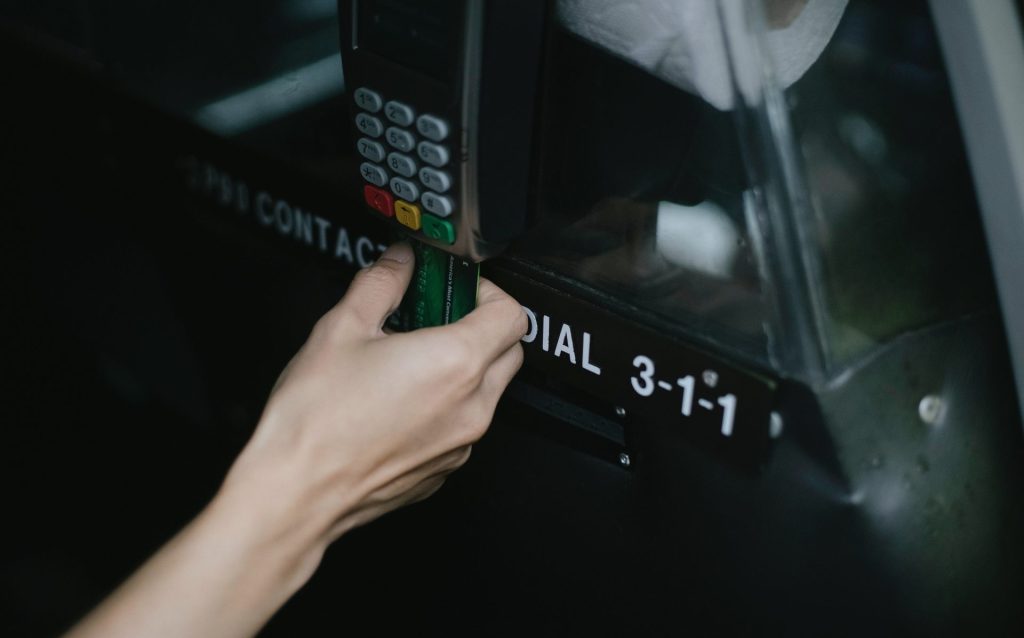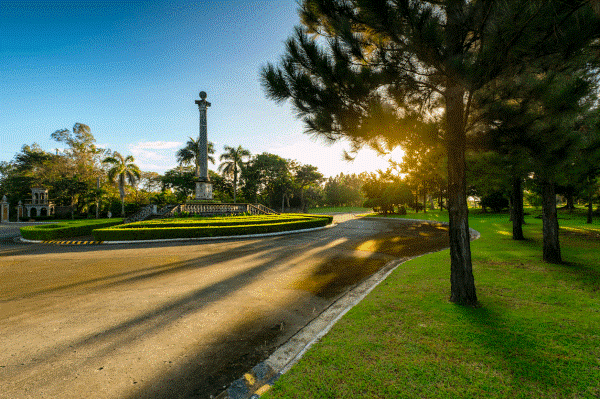BLOGS
2023 Best Credit Card in the Philippines
Credit cards have become an essential financial tool for many Filipinos, providing convenience and flexibility in managing their finances. With a wide range of credit card options available in the market, it can be overwhelming to choose the best one that suits your needs. In this article, we will explore the top 10 best credit cards in the Philippines for the year 2023.
Why are Credit Cards Gaining Popularity in the Philippines?
In the rapidly digitized world we’re living in today, credit cards are gaining popularity due to several reasons, such as the following:
- Credit cards provide a convenient and secure payment method for online shopping, which has seen significant growth in the country’s e-commerce market, reaching $17 billion in sales in 2021 and is projected to reach $24 billion by 2025.
- Credit cards enable hassle-free overseas transactions, allowing Filipinos to make purchases from international websites and travel abroad without the need for physical currency exchange.
- Credit cards facilitate online payments, including those of utility bills, offering a convenient and centralized way to settle various expenses.
Best Credit Card in the Philippines Per Category
Knowing the best credit cards in the Philippines is important because it allows you to make an informed decision that suits your needs and preferences and allows you to make a financially responsible choice. Here are the best credit cards in the Philippines per category:
Best Credit Cards for Low-Income Earners
Low-income earners should consider several factors in choosing the best credit card that caters to their interests and provides them with more spending power while helping them better manage their finances.
They should look for credit cards with lower income requirements, flexible payment terms, reasonable fees and charges associated with the card, and cashback rewards on specific purchases or have rewards programs where they can redeem rewards items per specific rewards point.

Here are some of the most recommended credit cards for low-income earners:
- PNB Visa Classic: PNB Visa Classic is one of the PNB credit cards often considered the best credit card for low-income earners in the Philippines due to its attractive features and benefits, including flexible installment programs and comprehensive security features. A low monthly income requirement makes it accessible to individuals earning at least PHP 120,000 annually. It also offers a competitive monthly effective interest rate of 2% and a low annual fee of only ₱300 per year.
- BPI Blue Mastercard: This credit card is one of the best credit cards for low-income earners in the Philippines due to its favorable features. The monthly income requirement for this card is relatively low (PHP 15,000), making it accessible to individuals with limited income. Additionally, it offers low interest rates (3%), allowing cardholders to manage their expenses more effectively. The annual fees associated with the BPI Blue Mastercard are also affordable (PHP 1,550/year), providing financial flexibility to low-income earners.
Best Credit Cards for Beginners
Beginners or first-time credit card users can start choosing the best-suited credit card for them by comparing different credit cards offered by various banks and financial institutions in the country. Factors to consider include the card’s annual fee, interest rates, credit limit, rewards program, and any additional benefits such as travel insurance or cashback offers.
Here are some of the best credit cards for beginners:
- Metrobank Titanium Mastercard®: With no annual fee for life (for a limited time), a free welcome gift, a wide variety of rewards, and a 0% installment plan for manageable payments, the credit card Metrobank Titanium Mastercard® is a great choice for beginners in the Philippines.
- AUB Classic Mastercard: The AUB Classic MasterCard is considered one of the best credit cards for beginners in the Philippines due to its user-friendly features and benefits. As a first-time credit card user, it offers a hassle-free experience with easy application processes and flexible payment options. The credit limit is determined by AUB based on factors like credit history and salary, ensuring a suitable credit limit for beginners. The AUB Classic MasterCard also provides various rewards programs and benefits, making it an attractive choice.
Best Cashback Credit Cards
Credit card holders in the Philippines can choose the best cashback credit card for them by considering a few factors. These factors include their spending habits so they can determine which categories they spend the most on, such as groceries, dining, or travel, and the cashback rates and minimum spending requirements and any cap on cashback earnings offered by the credit card.
Here are some of the best cashback credit cards you can choose from:
- HSBC Gold Visa Cash Back Credit Card: The HSBC Gold Visa Cash Back credit card is considered one of the best cashback credit cards in the Philippines due to its numerous benefits and features. Some of these benefits and features include a 5% cashback on dining expenses and on other purchases, including department store and international online store purchases, PHP 2,500 cash rebate as a welcome bonus for new cardholders, and installment plans for big-ticket items and cash installment plan for emergencies.
- BPI Amore Cashback Card: The BPI Amore Credit Card also boasts of numerous attractive benefits and rewards program for its cardholders. The card offers generous cashback rewards on everyday purchases, making it an attractive choice for Filipinos looking to maximize their savings. The BPI Amore Platinum Cashback card goes a step further by providing additional benefits such as discounts and free access to Ayala Malls lounges.
Best Airmiles Credit Cards
When choosing the best Airmiles credit card in the Philippines, credit card holders should consider several factors. First, look for a card with a low spend-per-mile requirement, as this will allow you to accumulate miles faster. Additionally, check if the card offers travel insurance and assistance, which can be beneficial during your trips.
It’s also important to find a card with low foreign transaction fees to avoid unnecessary charges during international travel. Lastly, look for a card that provides free airport lounge access for added convenience and comfort. Some popular options in the Philippines include the following:
- RCBC Visa Platinum: The RCBC Bankard Visa Platinum is considered one of the best Philippine airmiles credit cards for several reasons. It offers a competitive rewards program that allows cardholders to earn airmiles for their purchases. For retail spending, cardholders can earn 48 pesos for every 1 mile earned, while for groceries, gas, and drugstore purchases, they can earn 125 pesos for every 1 mile earned. This generous conversion rate makes it easier for cardholders to accumulate airmiles quickly. RCBC Visa Platinum also provides various privileges and benefits, such as travel perks, dining promos, and entertainment options, which enhance the overall travel experience.
- AirAsia Credit Card: The AirAsia Credit Card powered by RCBC Bank is perfect for frequent AirAsia travelers, allowing them to earn points easily and redeem them for rewards. New cardholders who spend at least Php 20,000 within 60 days of receiving their card can receive up to 8,000 AirAsia points as a welcome gift, which can be used to redeem free flights or digital vouchers. Existing RCBC Credit Cardholders can also receive 4,000 AirAsia points. Cardholders can earn points faster by using their card for purchases, with conversion rates starting at Php22 per point. AirAsia Credit Cardholders can also receive AirAsia Platinum membership status for the first year, which includes benefits such as priority check-in and boarding, Xpress Baggage, and access to rewards sales.

Best Secured Credit Cards
A secured credit card is a type of credit card that requires a cash deposit from the cardholder, which acts as collateral in case of missed payments. Note, though, that secured credit card holders aren’t allowed to withdraw their cash deposit as it’s the basis of their credit limit, making a secured credit card a different financial tool from a savings account, which is designed for saving money while retaining easy access to the funds deposited.
Secured credit cards are gaining popularity with freelancers and self-employed customers because they offer an opportunity for them to build credit. Freelancers and self-employed individuals often face challenges when it comes to accessing traditional credit cards due to fluctuating income or irregular payment schedules. Secured credit cards provide a solution by allowing them to establish creditworthiness through a cash deposit.
Here are two of the best secured credit cards available in the Philippines:
- BPI Express Start Card: This BPI credit card offers a low minimum deposit requirement and allows cardholders to enjoy the benefits of a credit card while building a credit history. It also provides cashback rewards and installment payment options.
- Security Bank Fast Track Secured Credit Card: This secured credit card is considered one of the best secured credit cards in the Philippines due to a combination of benefits that make it a top choice among secured credit cards in the Philippines. It offers guaranteed approval, making it an excellent option for individuals with a lack of credit history or bad credit. It also doesn’t have a minimum monthly income requirement, making it accessible to individuals with low or unstable income.
Applying for a Credit Card: Things to Take Note Of
Now that you know the recommendable credit cards per category, you then have to consider other factors like their alignment with your financial goals and lifestyle. It’s also important to understand the process of applying for a credit card in the Philippines.
Features to Look for When Choosing a Credit Card
When choosing a credit card, it is essential to consider the features that align with your spending habits and financial goals. Here are some of the features that you should consider when choosing a credit card:
1) Annual Membership Fees
Annual fees are charges imposed by credit cards for using their services, often included in credit card bills on the first month after becoming a cardholder. In subsequent years, the annual fee is charged on or around the cardholder’s account anniversary.
It’s thus important to consider these fees when choosing a credit card because they can significantly impact the overall value and cost-effectiveness of the card. While some cards offer bigger rewards and benefits, they often come with costly annual fees. On the other hand, some cards may offer no annual fees but no way to accumulate rewards points or benefits.
Sometimes, many cards provide benefits without charging an annual fee. However, it’s commonly subject to different terms and conditions of that credit card’s promo and may even be constrained by the promo period. Some credit cards also provide ways to waive the annual fee, provided you’re a high-value banking or investment customer or an active-duty military member.
2) Credit Card Fees
When choosing a credit card in the Philippines, it is crucial to consider credit card fees and prioritize selecting a card with low fees, intuitively so that you won’t be caught in an overwhelming amount of credit card debt. Here are some of the credit card fees you should take note of:
- Finance Charge: Credit cards often impose finance charges on outstanding balances that are not paid in full by the due date. These charges can be quite high, usually ranging from 2% to 3.5% per month. By selecting a card with lower finance charges, you can minimize the interest you pay on your outstanding balance.
- Late Payment Fee: Late payment fees are imposed when cardholders fail to make the minimum payment by the due date. These fees can vary but typically range from ₱300 to ₱700 per occurrence. Opting for a card with lower late payment fees can help you avoid unnecessary expenses and penalties.
- Foreign Currency Conversion Fee: If you frequently make purchases in foreign currencies or shop online from international merchants, it is essential to consider the foreign transaction fees. These fees are usually a percentage of the transaction amount and can add up quickly. Selecting a card with lower foreign or no fees can help you save money on international transactions.
- Cash Advance Fee: Some credit cards allow users to withdraw cash from ATMs, but this service often comes with high cash advance fees. These fees can range from 3% to 5% of the total cash advance amount. Opting for a card with lower cash advance fees can help you avoid unnecessary charges when you need to access cash.
3) Interest Rates
Interest rates should be considered when choosing credit cards because they play a significant role in determining the cost of borrowing and the overall financial strain on cardholders. For example, a cardholder who opts to have their credit card balance carried over to the next monthly billing statement may incur additional payments based on the interest rates, so low-interest credit cards can help ease the financial burden for the said cardholder.

4) Credit Card Perks
When choosing a credit card, it’s important to consider the perks it offers and how they align with your preferences and financial goals. Credit card perks can vary widely, ranging from cash-back rewards and airline miles to discounts on travel or retail purchases. These perks can provide significant value if you frequently use the card for specific categories or if they align with your spending habits.
For first-time credit card users or those looking for a basic credit card, it’s important to focus on cards with no annual fees and low-interest rates. These cards can help establish a credit history and build credit without incurring unnecessary costs.
On the other hand, premium credit cards often come with higher annual fees but offer more exclusive perks like a higher or unlimited credit limit, cash rebates, airport lounge access, free travel insurance, concierge services, and higher reward rates. These cards are suitable for frequent travelers or individuals who can take full advantage of the added benefits.
Ultimately, the choice between basic and premium credit cards depends on your financial situation, spending habits, and personal preferences. It’s crucial to carefully evaluate the perks offered by each card and determine which ones align with your goals and priorities.
5) Security Features
Credit cards with the best security features should be considered because they provide protection against fraud and unauthorized transactions, giving users peace of mind. These security features are designed to safeguard cardholders’ financial information and minimize the risk of identity theft. Examples of common security features provided by credit cards include:
- EMV Chip Technology: Credit cards in the Philippines are equipped with EMV (Europay, Mastercard, Visa) chip technology. This chip generates a unique transaction code for every purchase, making it difficult for fraudsters to replicate or clone the card.
- Two-Factor Authentication: Many credit card issuers in the Philippines provide two-factor authentication for online transactions. This adds an extra layer of security by requiring cardholders to provide a One-Time Password (OTP) sent to their registered mobile number before completing the transaction.
- Fraud Monitoring Systems: Credit card companies employ advanced fraud monitoring systems that detect suspicious activities and notify cardholders immediately. This helps prevent unauthorized transactions and provides early detection of fraudulent activity.
- Zero-Fraud Liability: Credit cards in the Philippines often come with zero-fraud liability, meaning cardholders are not held responsible for unauthorized charges if reported promptly. The credit card issuer will investigate the matter and put the charge on hold during the process.
- Purchase Protection Insurance: Some credit cards offer free purchase protection insurance. This credit card promo provides coverage for fraud, loss, and damage on purchased items paid through credit cards. It is designed to protect cardholders from financial losses in case of accidental damage or theft occurring within a specific timeframe, usually 180 days from the date of purchase.
How to Apply for a Credit Card
To apply for a credit card in the Philippines, you can either visit a bank branch or apply online through the bank’s website. The application process typically involves filling out an application form, submitting the required documents, and undergoing a credit assessment. Typically, people with existing credit cards are highly likely to be approved on their new credit card application.
Once your application is approved, you will receive your credit card within a few days. It is advisable to activate your credit card immediately and familiarize yourself with the terms and conditions to maximize its benefits.
How to Qualify for a Credit Card in the Philippines
To qualify for a credit card in the Philippines, you need to meet certain criteria set by the credit card issuer. Banks and financial institutions assess your creditworthiness by evaluating your income, employment status, and credit score.
Although specific credit cards may have additional criteria, such as a minimum income requirement, most credit cards in the Philippines commonly require the following basic qualifications:
- Being at least 21 years old;
- Having Filipino citizenship or legal residence in the country
- Having a nearby address to a bank branch; and
- Having a landline, mobile phone, or email where they can contact you regarding the status of your application.

Similarly, some credit cards may require additional documents to evaluate your application further, such as audited financial statements for self-employed individuals, but they’re mostly documents that are used to confirm your identity, income, and employment status. Here are some of the documents commonly asked for during a credit card application:
- Completed application form;
- Valid ID (e.g., UMID, passport, driver’s license);
- Employment contract or certificate;
- Latest income tax return; and
- Pay slips
If you are a first-time credit card applicant, starting with a basic credit card before upgrading to premium cards is recommended.
Maintaining a High Credit Score in the Philippines
A good credit score is crucial for a healthy financial life. It reflects your creditworthiness and determines your eligibility for various financial products, including credit cards. To maintain a high credit score in the Philippines, it is important to pay your bills on time, avoid maxing out your credit limit, and keep your credit utilization ratio low.
Why is a Good Credit Score Important?
Having a good credit score opens up a world of financial opportunities. It gives you access to better interest rates, higher credit limits, and more favorable terms and conditions. A good credit score also enhances your chances of getting approved for loans, mortgages, and other forms of credit.
Financial institutions consider individuals with good credit scores as low-risk borrowers, making it easier for them to access credit when needed. Ultimately, a good credit score reflects your financial discipline and responsibility, which can positively impact your overall financial well-being.
How to Check for Your Credit Score in the Philippines
You can check your credit score in the Philippines through credit bureaus such as TransUnion and CIBI Information Inc. These credit bureaus provide credit reports that contain your credit score, credit history, and other relevant information. You can request a copy of your credit report online or visit their offices to obtain a physical copy.
How to Improve Your Credit Score in the Philippines
If you have a low credit score or want to improve your creditworthiness, there are several steps you can take, briefly outlined as follows:
- Pay your bills and debts on time to demonstrate your financial responsibility.
- Avoid maxing out your credit limit and keep your credit utilization ratio below 30%.
- Avoid applying for multiple credit cards or loans within a short period, as it may negatively impact your credit score. Wait at least three months after your previous application before applying for another one.
- Regularly review your credit report for any errors or discrepancies and dispute them if necessary.
Get Luxury Properties Without Hurting Your Credit Score at Brittany Corporation
If you want to invest in luxury properties without hurting your credit score, Brittany Corporation offers a range of premium real estate options in the Philippines. With a solid reputation for quality craftsmanship and attention to detail, Brittany Corporation provides luxurious, well-designed homes in prime locations. Our properties are built to the highest standards and offer a combination of elegance, comfort, and exclusivity.
Final Words
Choosing the best credit card in the Philippines requires careful consideration of your needs, preferences, and financial goals. By understanding the application process, features to look for, and how to maintain a good credit score, you can make an informed decision and maximize the benefits of owning a credit card.
Whether you are a low-income earner, a beginner, or someone looking for specific features like cashback, Airmiles, rewards, or secured credit cards, there are options available in the Philippines that cater to your needs. Consider your financial goals, spending habits, and lifestyle preferences when selecting the best credit card.
Suggested Read: An In-Depth Guide To Getting Pre-Approved For A Home Loan
Suggested Read: What Are The Different Real Estate Financing Options
Suggested Read: ‘BBB’ Credit Rating: Everything To Know
Suggested Read: Digital Business Cards: What To Know
Suggested Read: How To Maintain A Good Credit Score
















